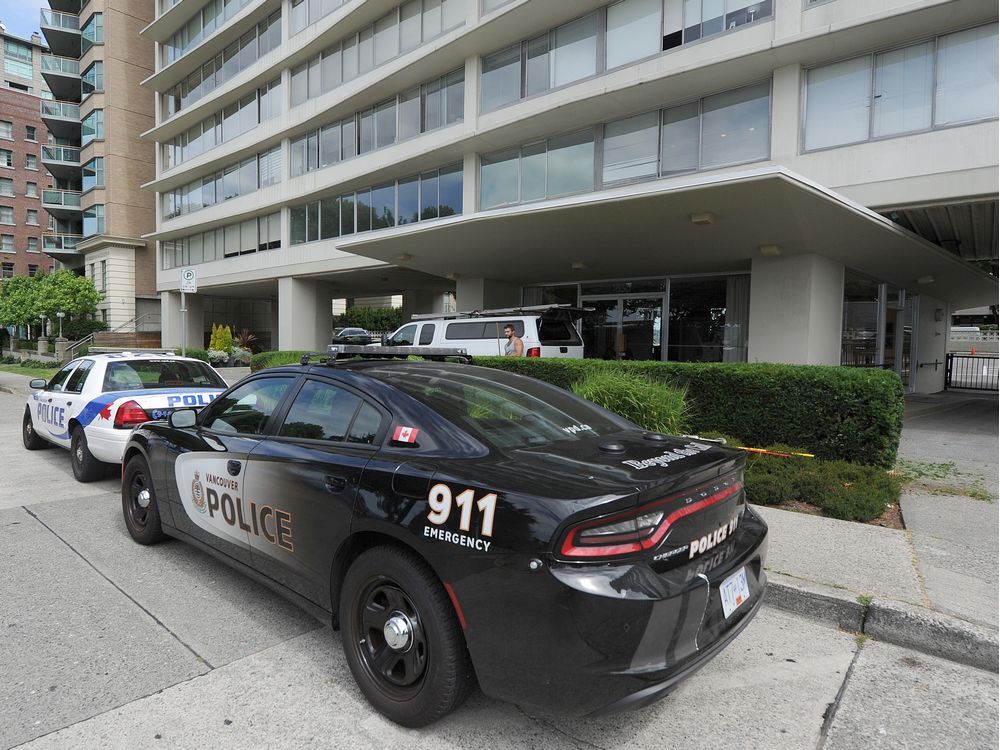Jury finds Vancouver senior guilty in double-murder case

Credit to Author: Keith Fraser| Date: Wed, 20 Nov 2019 21:02:17 +0000
A jury has found a Vancouver senior guilty of murdering two of his friends in a West End apartment two years ago, but the accused’s lawyer is arguing his client is not criminally responsible due to a mental disorder.
The verdict on Wednesday by the B.C. Supreme Court jury in the case of Leonard Landrick, 75, came after two days of deliberations.
On Tuesday, the jury had told Justice Ronald Skolrood that they were deadlocked and unable to reach a unanimous verdict. The judge exhorted them to continue their deliberations.
After the jury found Landrick guilty of two counts of second-degree murder in the July 2017 deaths of Sandra McInnes, 57, and Neil Croker, 51, Landrick’s lawyer, John Stowe, stood up in court and addressed the judge.
In an unusual move, Stowe asked the judge not to enter the guilty verdict and said he was interested in pursuing a hearing to determine whether Landrick was not criminally responsible due to a mental disorder. He asked that an assessment of his client be conducted.
Crown counsel Brian MacFarlane objected, telling the judge that there was no foundation to have such a hearing.
The judge indicated that he needed to hear more on the issue but asked the jury, in the meantime, to consider the issue of Landrick’s parole ineligibility. Second-degree murder carries a mandatory sentence of life in prison with no parole for between 10 and 25 years.
The judge asked the jury to return to the jury room and consider whether they wished to make a recommendation on parole ineligibility. The jury returned to the court after about 20 minutes to say they had no recommendation.
The judge then told the jury that the defence had raised an issue that needed to be canvassed and said that he was excusing them but not discharging them, meaning the jury may have to return to court at some later date.
The two victims were found stabbed to death in their apartments at the Ocean Towers highrise on Morton Avenue. The Crown’s theory was that Landrick’s motive to kill them involved a belief that they had rendered him unconscious using a date rape drug and that Croker had then raped him.
Prosecutors pointed to DNA evidence — bloody jeans discarded in a dumpster and a bloody shirt found in the bushes near the Savoy Hotel — that they said were disposed of by Landrick and linked him to the murders.
Landrick testified in his own defence and denied that he had killed his neighbours. McInnes had been a long-term resident of the building as well as serving on the co-op board and Croker was the building’s caretaker. Landrick himself was a long-term resident who had had an active role in the maintenance of the building.
In final submissions, Stowe noted that his client had testified over a total of four days, which he said was a long time to be on the witness stand.
He said it was important that Landrick had testified that when he returned to his apartment on the night of the slayings after having gone for a walk in the neighbourhood, his door was unlocked.
Stowe pointed to a police investigation in 2015 into an allegation that another resident of the building was armed with a knife and taken into custody.
But in his final submissions, MacFarlane told the jury that the 2015 incident was interesting and an “incredible” coincidence but of “no consequence” to case as there was no evidence that the individual had any animus towards the two victims.
The “overwhelming” circumstantial evidence against Landrick meant that nobody else could have committed the murders, he said.
twitter.com/keithrfraser